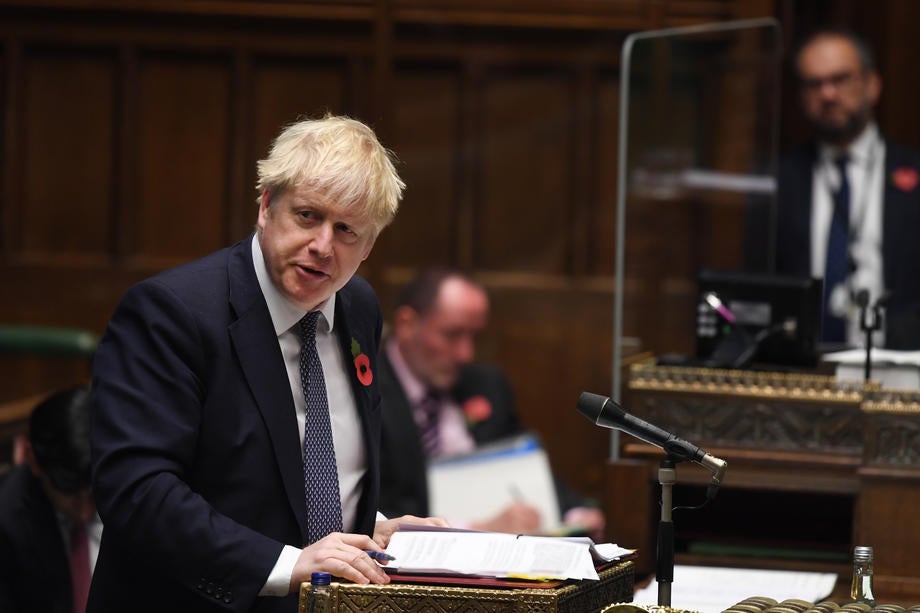The Commons vote looked like an endorsement of Johnson’s lockdown policy – but it actually highlighted the weaknesses of his approach
Not only has Keir Starmer claimed ownership of the policy but the vote allowed a group of Tories to coalesce around an anti-lockdown stance, which is going to become more troublesome for the PM, writes Andrew Woodcock


This week’s Commons division on lockdown was one of those odd occasions when a landslide victory is not as helpful to the prime minister as you might think.
On the face of it, the 516-38 vote was a powerful endorsement of Boris Johnson’s policy of putting England into lockdown for four weeks to quash the coronavirus.
In reality, however, the figures served only to highlight weaknesses in the prime minister’s approach and divisions on the Conservative side, while giving his opponents a chance to claim the high ground.
The PM’s problems arose as a result of Keir Starmer deftly deploying one of the most powerful tricks available to an opposition leader – predicting what the government will have to do in a few weeks’ time and demanding it immediately.
Having spent several weeks calling for a two-week circuit-breaker lockdown, the Labour leader was not only able to send his troops happily through the “aye” lobby to back the PM’s plan, but could do so while denouncing Johnson for dithering over it.
If the lockdown succeeds in driving down the virus, Starmer will be able to claim ownership of the policy. If it doesn’t, he can argue that the PM left it too late and allowed Covid to get too tight a grip on the country. Either way, Labour wins credit for taking a firm stance, while Johnson – in trying to keep businesses open in as many parts of the country as possible, only to then order them to close – looks like a flip-flopper.
Meanwhile, the vote allowed a sizeable group of Tories to coalesce around an anti-lockdown stance that is only going to become more troublesome for the PM the longer the pandemic lasts.
The 34 Tory rebels, including a former party leader, an ex-chief whip and the leaders of the influential backbench 1922 committee, represent a growing body of opinion in the country, one that has had enough of restrictions to social and economic lives, doesn’t trust the science – or the way it is presented – and wants to get back to normal as soon as possible.
But they do not yet speak for the bulk of the electorate. Polling suggests that most are still supportive of restrictive measures to save lives. If the number of infections continues to rise, Johnson risks seeing his party tarred with the brush of being ready to let coronavirus rip through the population.
That would put him in the highly unenviable position of being the head of a government with a stonking 80-seat majority who can only get policy on the most important issue of the day through the Commons with the say-so of the leader of the opposition. At that point, no landslide victory of any proportions would ease his pain.
Yours,
Andrew Woodcock
Political Editor


Join our commenting forum
Join thought-provoking conversations, follow other Independent readers and see their replies
Comments